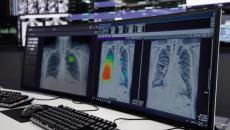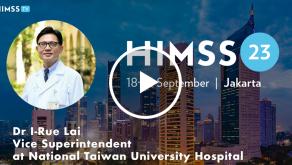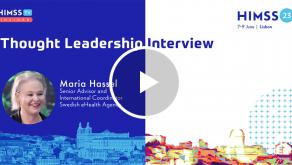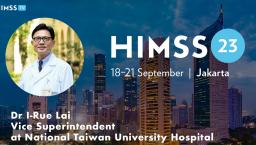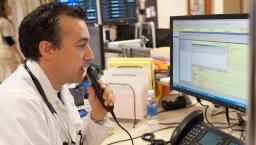Samsung Medical Center becomes APAC's first AMAM Stage 6 hospital

Photo courtesy of Samsung Medical Center
Samsung Medical Center in South Korea has become the first hospital in Asia-Pacific to be accredited for Stage 6 of the HIMSS Adoption Model for Analytics Maturity.
The AMAM measures an organisation's capabilities and advances in healthcare analytics.
WHY IT MATTERS
Based on HIMSS' evaluation, SMC demonstrated a robust analytics infrastructure and foundation, which incorporates a Clinical Data Warehouse, an Enterprise Data Warehouse, and cloud technologies that allow multiple ways of extracting and analysing data for research and other clinical activities.
SMC also showed good examples of AI solutions and integrations into clinical workflows, particularly its Fall Risk Score and Critical Interventions Score in the ER. Another AI tool, the Data-based Operation and Communication Center (DOCC) PAN, was also recognised for allowing staff to address any observable issues.
In preparation for a Stage 7 AMAM validation, SMC is expected to make some improvements in its analytics capabilities. These include demonstrating the use of analytics for treatment optimisation, early disease detection, and mortality rates, and showcasing the use of analytics in operations, such as reducing unnecessary tests and optimising the supply chain.
It was also recommended that the hospital explore provisioning proactive alerting and potential remediation recommendations in the DOCC PAN.
THE LARGER TREND
Early this year, SMC received two more Stage 7 validations for the Digital Imaging Adoption Model and the Electronic Medical Record Adoption Model. These followed its Stage 7 Infrastructure Adoption Model certification last year. The hospital also topped all health systems globally in 2022’s HIMSS Digital Health Indicator ranking.
After proving the credibility of its IT infrastructure, SMC is now taking steps to improve patient safety and clinical care and operations by instituting a cyclical process of analysing data and applying that analysis back to clinical practice.
For some time, the hospital has been able to predict test volumes to manage test waiting times and reduce patient congestion. It has also been predicting fall risks which help return some nurses' time spent on patient monitoring back to actual care.
Moreover, it has been consolidating disparate anonymous data sources to provide researchers with a unified dataset. SMC is now able to provide researchers with histological classification of lung cancer, enhancing the synergy of data processing.
ON THE RECORD
"With a number of HIMSS maturity model validations already under its belt, SMC has once again proved its commitment to digital excellence with this Stage 6 AMAM certification – a first for APAC. With this achievement, the hospital is demonstrating how it is improving patient safety and overall quality of clinical care through the effective use and deployment of analytics across the whole enterprise," Simon Lin, VP and Managing Director of APAC at HIMSS, said.
"Through the AMAM certification, SMC has sought objective validation of its efforts to establish a cyclical process of utilising data analysis results for feedback into clinical and operational practices. This certification allowed us to reexamine our goals and direction, and as a result, it has provided us with the confidence to move forward, alongside receiving a positive evaluation as the first in the APAC region," said Prof Deok-Hyun Han, Vice CMIO at SMC.
Next on SMC's digital transformation journey, according to Jong-Soo Choi, PhD, IT Lead at SMC, is to integrate its digital pathology with AI; explore ways to analyse patient-reported outcome results; and create eligibility criteria for enrolling participants in clinical trials and integrate said criteria with its clinical system.
The hospital is also entering a "new era in cancer treatment" as it started using the Onco DB for structuring genetic mutation information and implementing automation.

